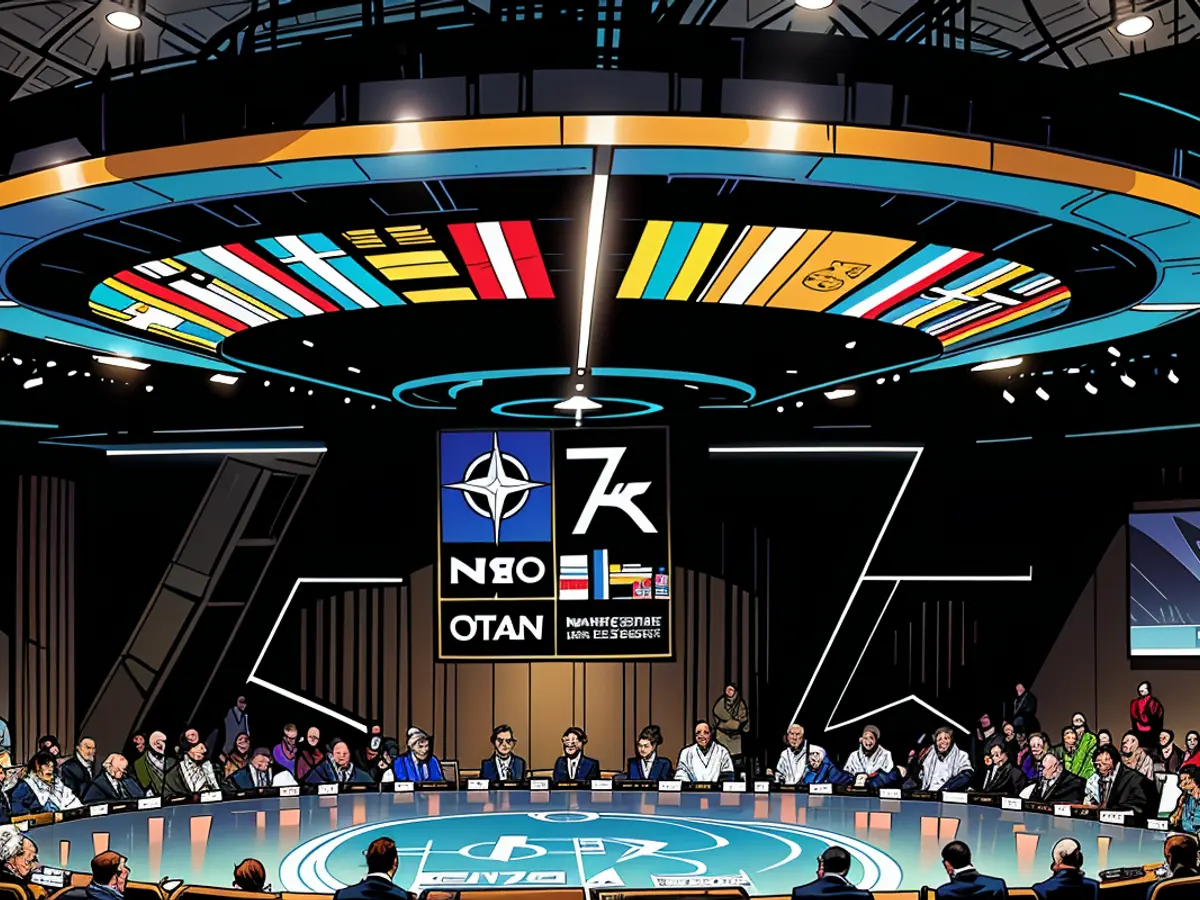NATO Summit - Upgrading: Government expects no strong resistance from the opposition
The German government of Chancellor Olaf Scholz (SPD) expects understanding from people regarding the rearmament with far-reaching US weapons in Germany. Both Defense Minister Boris Pistorius (SPD) and Vice-Chancellor Robert Habeck (Greens) trust that there is a serious threat from Russia and that it needs to be addressed.
At the fringes of the NATO summit in Washington, it became known that the USA plans to station weapons systems in Germany again from 2026, which can reach far into Russia.
Among them should be Tomahawk cruise missiles with a range of up to 2500 kilometers, which can technically be nuclear-armed, as well as SM-6 air defense missiles and newly developed hypersonic weapons. Russia and China reacted angrily to the announcement.
Scholz: Unbelievable rearmament in Russia
"We know that there has been an unbelievable rearmament in Russia, with weapons that threaten European territory," said Scholz on the sidelines of the summit in Washington.
Regarding the question of whether he reckons with greater resistance against the return of such far-reaching weapons even from his own party, Scholz said: "This decision has been long prepared and is no real surprise for those engaged in security and peace policy."
The decision brings back memories of the Cold War. Scholz himself had protested against the NATO Double Track Decision in the early 80s as a young Social Democrat, which included the proposed stationing of intermediate-range missiles like the Pershing II, which were withdrawn after the end of the Cold War.
Habeck: Naivety is not allowed
Habeck emphasized: "We must increase our readiness, because we live in a very dangerous time, which is different from the 80s. Therefore, naivety is not an option." During the demonstrations against the NATO Double Track Decisions in 1981, the Cold War was in full swing. "Now we are experiencing a hot war in Ukraine because shooting and dying is happening there," said Vice-Chancellor of the "Neue Westfälische" Habeck.
Pistorius: No new arms race
In the ARD "Tagesthemen," Pistorius said that there could be no talk of a new arms race. "Russia has had these weapons systems in place for a long time - as we assume - in Kaliningrad, which means in absolute range to Germany and other European nations," said Pistorius. He would not speak of a majority of critical voices.
Heusgen: Many in the government underestimate the danger
The head of the Munich Security Conference, Christoph Heusgen, criticizes the majority of the Scholz government for its communication on the Ukraine war. "In Germany, the defense minister speaks candidly and says we need to arm ourselves," said the former foreign policy advisor to Chancellor Angela Merkel (CDU) to the German Press Agency in Washington. However, his cabinet colleagues still underestimate the seriousness of the situation.
Moscow: NATO plans "link in the escalation chain"
Regarding the planned stationing, there were clear words in Moscow. The Russian security would be affected by the US weapons, according to Deputy Foreign Minister Sergei Ryabkov, citing the Tass news agency. It was about "a link in the escalation chain" of NATO and the USA against Russia.
We are on our way to a Cold War. All of this happened before," said Kremlin spokesperson Dmitri Peskov to Russian state television. He accused Germany, the USA, France, and Britain of directly intervening in the conflict over Ukraine. "And all the features of the Cold War return - with confrontation, with direct confrontation between adversaries."
Russia is revising its nuclear doctrine
The NATO decisions regarding Ukraine were called a threat to our own security by the Kremlin. The decision to take Ukraine into the alliance earlier or later makes clear the main goal of the alliance, which is to contain Russia, said Peskow. He confirmed that work was being done on changes to the nuclear doctrine. The previous guiding principle states that Russia may only use nuclear weapons in response to a nuclear attack or an existential threat to the country in the event of a conventional attack.
NATO website for the summit
- Chancellor Olaf Scholz (SPD) expressed the need for public understanding regarding the upgrading of US weapons in Germany for defense purposes.
- Boris Pistorius (SPD), Germany's Defense Minister, and Robert Habeck (Greens), the Vice-Chancellor, cited the serious threat from Russia as a justification for these upgrades.
- At the NATO Summit in Washington, the United States of America announced plans to station weapons systems in Germany from 2026, which can reach Russia.
- These weapons include Tomahawk cruise missiles, SM-6 air defense missiles, and hypersonic weapons, prompting strong reactions from Russia and China.
- Scholz acknowledged the significant rearmament observed in Russia, pointing out the threat these weapons pose to European territory.
- Regarding opposition within his party, Scholz stated that the decision to upgrade weapons was well-prepared and not unexpected for those involved in security and peace policy.
- The decision brings back memories of the Cold War, a period when Scholz, as a young Social Democrat, protested against the NATO Double Track Decision and its proposed Pershing II missile stationing.
- Habeck emphasized the necessity to increase readiness due to the dangerous geopolitical climate compared to the 80s, stating that naivety is not an option.
- Pistorius clarified that the planned upgrades do not represent a new arms race, as Russia has had similar weapons in place for a long time.
- Christoph Heusgen, head of the Munich Security Conference, criticized the Scholz government for underestimating the gravity of the Ukraine conflict and the need for military upgrades.
- In response to NATO decisions regarding Ukraine, Moscow announced revisions to its nuclear doctrine, shifting from the previous guiding principle of responding to nuclear attacks or existential threats with nuclear weapons.








